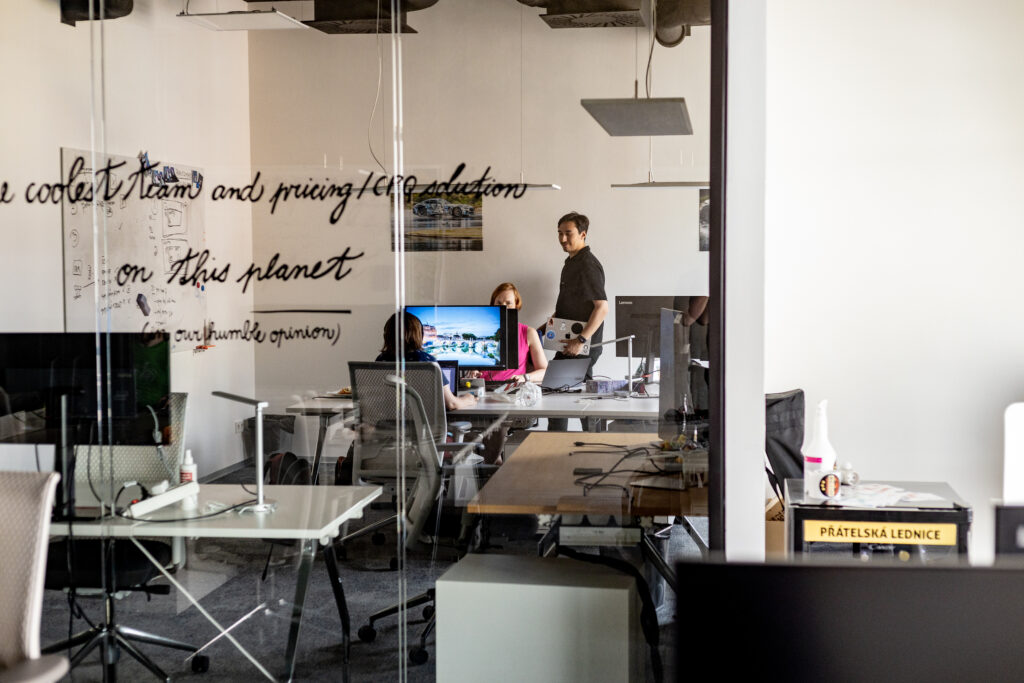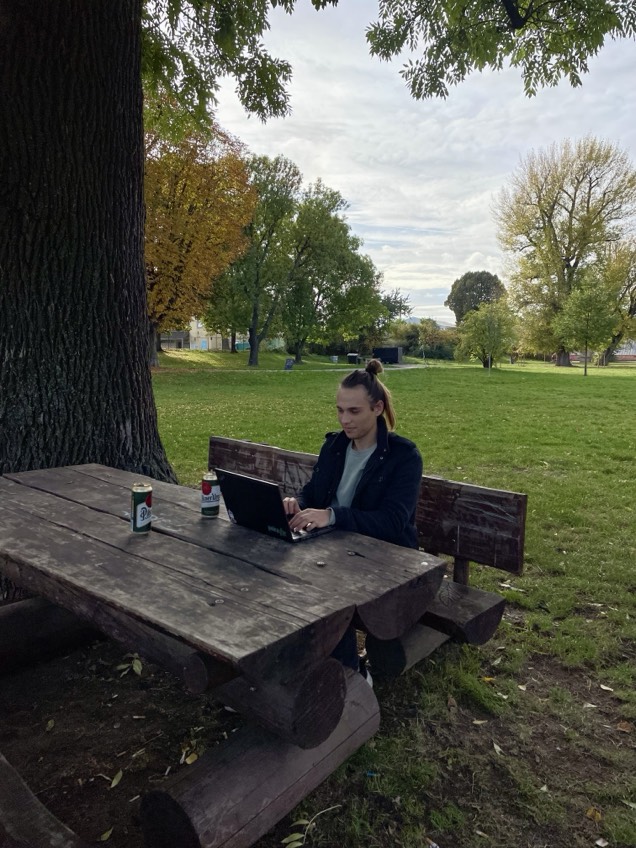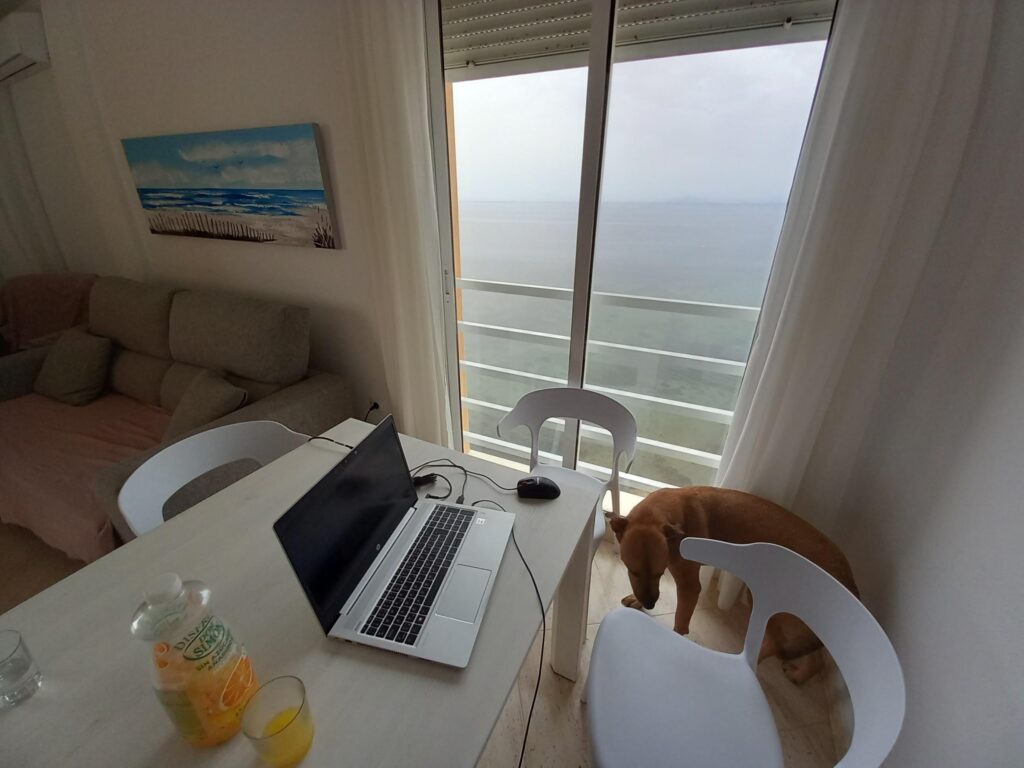Flexible ways of work at Pricefx: Work Anywhere, Feel at Home
November 20th, 2023 (Updated 02/14/2024) | 9 min. read
By Pricefx
Have you ever wondered, how does family and friendly work culture mix with remote work? Do you think it is impossible, or too difficult to nurture?
Pricefx gets high ratings for its company culture on various platforms like Atmoskop or Glassdoor, with words like ‘family’ and ‘friendly environment’ being thrown around.
Daniela tells us how she perceives the challenges as well as adventures, that arise from building a family-like company while having employees spread literally all over the world. One would expect that this is a mission impossible, yet our experience proves the opposite.
With countless people working remotely and branches in 7 countries around the globe, 90% of the employees at Pricefx would say they work there “because of the people they work with.” So how does a remote company culture get created, and what are the biggest challenges in the realm of diversity and inclusion at Pricefx?
How many countries have offices and teams?
We have branches in 7 countries worldwide, but also many partners who implement our software all over the world and we consider them members of our team. We’re talking about countries from Australia to Germany, the Czech Republic, Switzerland, France, the UK, the US, all the way to Vietnam, India, or Bangladesh. We’re truly global, with the chance to meet people of around 30 nationalities in our company. Even in the Czech Republic, we have employees hailing from the US, Romania, Lithuania, France, Ukraine, Morocco, Turkey, Greece, Russia, Brazil, Colombia, or Australia.

Pricefx gets high ratings for its company culture on various platforms like Atmoskop or Glassdoor, with words like ‘family’ and ‘friendly environment’ being thrown around. How does this mix with remote work?
We see working from anywhere as a natural thing. Since the company was founded and only had a few people, we’ve been working in a hybrid environment, which is why our culture is so important. We’re a SaaS (Software as a Service) company, so we also provide services in a virtual environment. Our product can’t function in just one place, we also operate in countries where we don’t have branches. Our largest teams were established in the Czech Republic, even though our founders were in Germany and Switzerland (we have our product development center there). It’s always been crucial for us to build the best teams where there’s potential and it makes sense. We also want to enable people to live and work in a flexible and friendly environment, which is why our management has adapted.
People in IT automatically expect not to have to go to the office every day, or almost not at all.
It’s one of the first questions in an interview, flexibility is important to them and it brings benefits for the company, allowing us to employ people in various locations. We have an office in Chicago, but we hire people all over the States, most of them don’t come to Chicago for an interview. If employees are in cities where we have an office, we love seeing them together. We do most of our interviews online. We have onboarding and training online and we utilize e-learning. Not seeing each other every day, of course, comes with its downsides and requires a responsible approach, respect, and tolerance. Managers have to help newcomers and actively create an environment that allows them to build relationships within the team even from a distance. And that’s not always easy.
How do you foster a friendly company culture remotely, with people all over the world?
Our company values are fast, flexible, friendly, and fair—we refer to these as our “F-words”. When people want to go to the office, they do. When they live where our offices are located, or they don’t want to go, they don’t. We’re flexible and friendly in that respect. In return, we expect a fair approach and responsibility. No one stands over you, telling you what exactly and how to do it. We’re in an industry where work is task-oriented, it’s necessary to solve problems and deliver on time and with the highest quality. That’s what makes us a successful company.

In the places where we have offices (Prague, Hradec Králové, Ostrava, Chicago, Paris), we organize get-together activities, which our Office team takes care of—we do this most in Prague, where we have the most people. Popular activities include newcomer breakfasts, beach volleyball in the summer, movie nights, Quiz nights, and we have a grill on the balcony where our Brazilian colleague loves to cook steaks for everyone. When Marcin, our co-CEO and co-founder, visits, he cooks his favorite dishes, sometimes for up to 50 people. We get to taste foods from various cultures and learn more about each other. We have VR, pool, a punching bag, chess, and a beautiful environment that many people enjoy visiting, even if they live close by. And every Tuesday, a blind masseur comes to help us with our back issues. I like it when the things we do have a broader purpose.
How do you work with people who don’t come to the offices?
It varies. Of course, each team has its routine, regular calls or stand-ups, or they organize their “in-person” meetings. Conversely, the activities we organize in the offices connect people across teams. In places where there are no offices, we strive to connect people and keep them in communities. We’re fond of fitness apps and challenges, which can also be used for CSR activities. It motivates people to exercise, close their computers, and it’s for a good cause. Each employee has two paid CSR days, which they can use for nonprofit work, whether they go as a team or as individuals. You can see the family atmosphere and solidarity in this. When there were freezes in Texas and people had their homes destroyed, we created a challenge and the money that employees “ran for” was matched by us and donated to support our colleagues who were in a difficult situation. We did the same for Brisbane when there were floods, checking on our colleagues, if they were affected and needed help. When there was a tornado in Moravia, people got up and went to help as part of the CSR days. We have held funding challenges for Moravia and Ukraine. We enjoy participating in various charity runs.
On the Pricefx website, the company’s characteristics of being “people-centric” and “passionate” are likely to catch a candidate’s attention. Does HR evaluate candidates based on these criteria?
Definitely. We don’t call ourselves HR, we’re People & Culture, and for good reason. One thing is experience and knowledge, another thing is whether a person is passionate and really enjoys it. When one has passion and heart, they do their job gladly and better than those who do it just for the money. Competence and experience is important, but even more so is enthusiasm and the willingness to learn and develop. If you ask people why they work for us, 90% of the time the first response is “because of the people I work with”. This comes out in our regular surveys. Every Friday, we send an email with 6 questions where we track how our employees perceive work-life balance, cooperation, whether they have manager support, understand the priorities, if our processes work. We’re interested in the atmosphere, how they perceive diversity and inclusion, fairness, transparency, and other areas of the company and culture. They also have the opportunity for open comments. The leadership team works with the feedback. This is very useful continuous feedback in a remote or hybrid environment.
You monitor the mood of people in the company every week? That’s quite above standard.
During Covid, we were looking for a tool through which we could be in contact with people more often than during a traditional annual survey. We chose Friday6. It proved to be effective and we continue to do it to this day. We see what’s happening in the teams, how people feel. One of the questions is, for example: How did I feel at work over the past week? Managers can respond immediately to this, and it helps them open up topics that they might not notice in an online environment. We’re growing a lot in the USA, managers have team members on different continents and in different time zones, from different cultures. This is challenging. Sometimes it leads to misunderstandings. It helps them monitor the mood and situation in the team. But they must be willing to work with this tool. It’s an investment.

How can you manage flexibility when people work from home, from different time zones?
That’s exactly why we need to be flexible. Otherwise, it wouldn’t work. We also need to respect each other. Sometimes it’s hard, other times impossible to find a common time for a team call when you’re connecting people from 3 continents. It’s always up to the manager’s management and the willingness of people to adapt. We implement software at clients’, people who sell or implement need to function mainly in the client’s working hours, even if it sometimes means having a call at a time other than the standard working hours. Important internal messages are recorded. So those who couldn’t attend the meeting can listen to them later.
While we are on the wave of flexibility now, let me lure you into some more reading. Our colleagues, Donatas and Bara, share with us their experience with flexible ways of work and the temptations they face on their daily work journey.